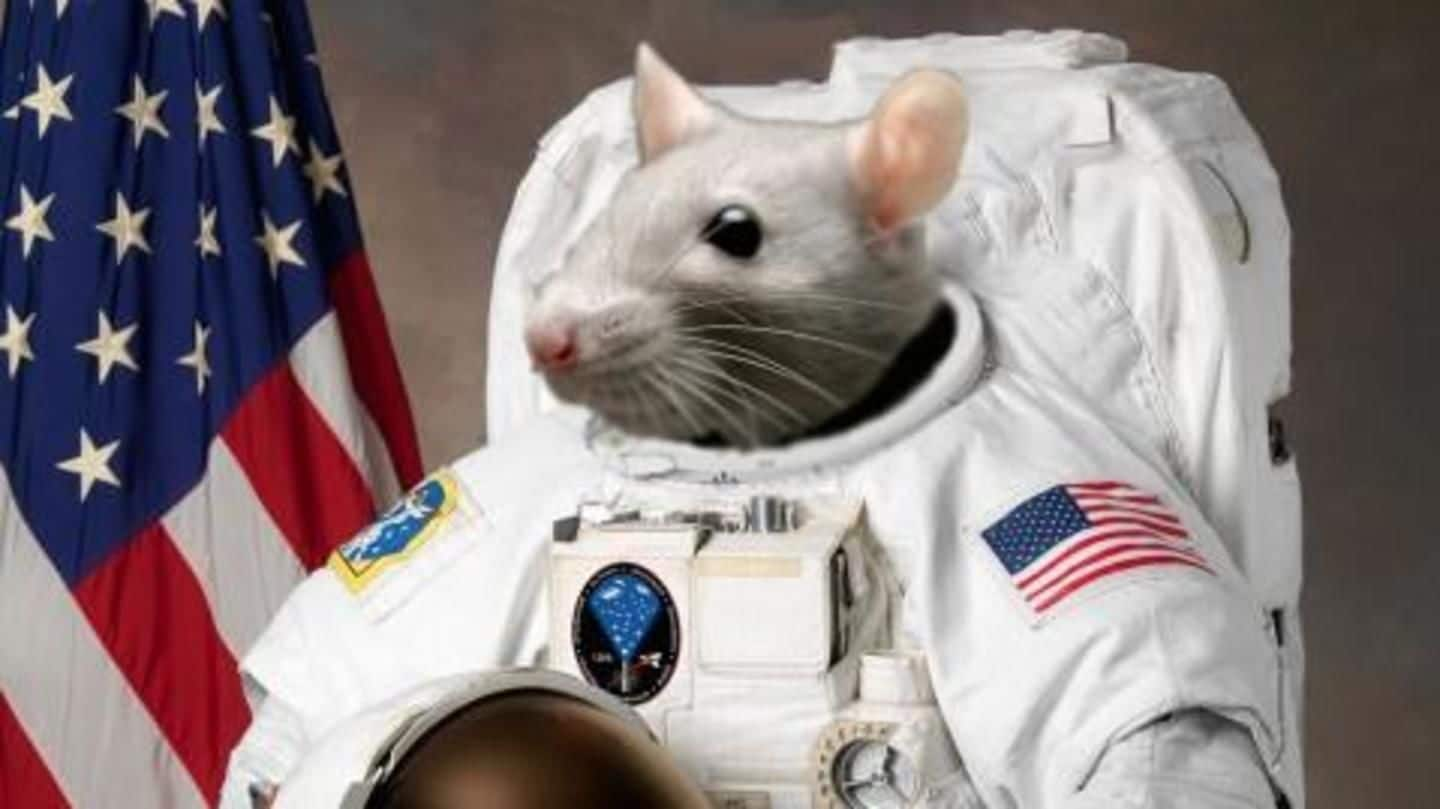
NASA sent 20 mice astronauts to space, here's why
What's the story
Space exposure poses myriad health risks to Earth-dwellers, including the likes of vision loss, cancer, and psychological ailments. All of the above, obviously, pose major hurdles to humanity's vision of eventually establishing space colonies, the most short-term goal being a manned mission to Mars. To better understand these debilitating effects, NASA has sent 20 laboratory mice to the International Space Station (ISS). Here's more.
Details
The mice will spend a record 90 days in space
On Friday, a Falcon 9 rocket blasted off from the Cape Canaveral Air Force Base, carrying the 20 rodent passengers. 10 of the mice, who are expected to arrive at the ISS on Monday, will spend a record 90 days in space, while the other 10 will spend 30 days before returning to Earth. Their identical siblings will be monitored on Earth for comparison.
Comparative study
What NASA hopes to learn from the study
Researchers will monitor the circadian rhythms (body-clock) of the space faring mice, along with microbiome (bacteria and other organisms that inhabit the body), and other physiological processes. By comparing the space faring mice with their siblings on Earth (who, incidentally, will be exposed to the same exact conditions in a laboratory), NASA hopes to observe how space exposure changes a mouse's physiology and behavior.
Why mice?
How exactly does studying mice help us?
Of course, humans are biologically different from mice, but the importance of the study lies in the time spent in space. 90 days in a mouse's life is equivalent to nine years of a human life, and the study will thus provide insights into how behavior and physiology change when an Earth-dwelling creature spends a significant part of its life in space.
Mars mission
Why the study is important for a manned Mars mission
This is particularly important considering that a manned mission to Mars, and eventual colonization will likely take several years. Thus, before sending humans into a potentially life-threatening mission, NASA needs to figure out how exactly space exposure for long periods of time might affect the human body and the mind. Of course, this a preliminary step, but it's a start towards greater understanding.
Earlier study
NASA had conducted a similar, but limited study earlier
This isn't NASA's first experiment using siblings. Earlier, when astronaut Scott Kelly spent one year aboard the ISS, NASA monitored him, and his Earth-based twin sibling. NASA found that space exposure had altered the expression of 7% of Scott's genes. However, owing to Scott's brother living his own life on Earth, several factors could've affected the study's findings, thereby calling for further, controlled research.